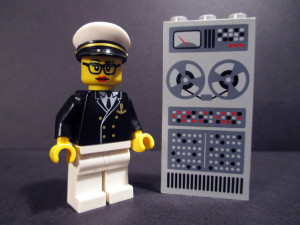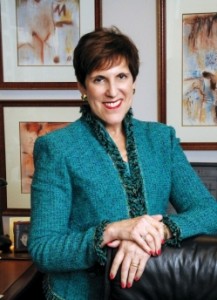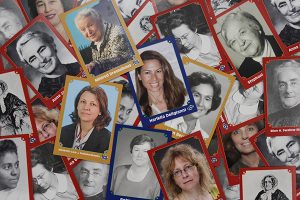 Forty years ago, Joan Berkowitz became the first female president of The Electrochemical Society. In honor of the groundbreaking milestone, ECS will host the symposium, “40 Years After: A Symposium on Diversity,” taking place on Wednesday, October 16, at the 236th ECS Meeting. The symposium will not only celebrate the past but also look towards the future, encouraging conversations and examining options to promote the continued support of not only women in the sciences, but diversity and inclusiveness overall. (more…)
Forty years ago, Joan Berkowitz became the first female president of The Electrochemical Society. In honor of the groundbreaking milestone, ECS will host the symposium, “40 Years After: A Symposium on Diversity,” taking place on Wednesday, October 16, at the 236th ECS Meeting. The symposium will not only celebrate the past but also look towards the future, encouraging conversations and examining options to promote the continued support of not only women in the sciences, but diversity and inclusiveness overall. (more…)
Change isn’t easy. For women, it took lobbying, protests, campaigns, and even jail time to receive the right to vote. It wasn’t until August 26, 1920, when women’s fight for change finally paid off. The Nineteenth Amendment was added to the United States Constitution, giving women the right to vote as citizens of the United States, regardless of their sex. Today, we celebrate women, their achievements, and the continued need for change.
Actress, comedian, and author Amy Poehler has put a lot of effort into empowering young girls in science for some time now. Her Smart Girls project took off in 2008, which serves as a place where future women can foster their curiosity and pursue opportunities in STEM. Now Poehler and her Smart Girls group are adding to the women in STEM conversation with their new series, “Experimenting with Megan Amram.”
Amram is a Harvard graduate, author, and comedian. The new web series serves as a perfect platform to continue what she already started in her book Science… for Her!. The parody science text is comedic in nature, but takes a hard look at the gender gap in STEM and offers up some pretty solid science as well.
As an added bonus, you can even get a step-by-step instructions on how to conduct Amram’s experiments.
PS: Head over to the ECS YouTube page to find more educational science videos.

Computing pioneer Rear Admiral Grace Hopper as a LEGO minifigure.
image by: pixbymaia, image license: Attribution-NonCommercial-ShareAlike
One of the quotes I like to keep on my desk is, “A ship in port is safe; but that is not what ships are built for. Sail out to sea and do new things.”
“Amazing Grace” Hopper, who said those words, certainly did new things. She was a computer programming pioneer, and the first woman at Yale University to earn a doctorate in math.
She is perhaps most noted for having invented key software technologies that laid the ground for today’s computer languages, and which remain a part of our everyday life. She was able to convince industry and government agencies to agree on a common business programming language, called Cobol, which (among many uses) is still used when you withdraw money from a cash machine.
She also worked on a device called the Automatic Sequence Controlled Calculator, which worked out flight trajectories for rockets. Named for her are many places and objects, including the U.S. Navy destroyer USS Hopper, the Department of Energy’s flagship computer system “Hopper,” and the Cray XE6 “Hopper” supercomputer at NERSC.
Read about just ten of the many women who changed the tech industry forever.

Madeleine Jacobs, Chief Executive Officer and Executive Director of the American Chemical Society.
Credit: Peter Cutts
Madeline Jacobs has held steadfast to the idea of improving lives through the transforming power of chemistry during her career. Now, after seeing all she set out accomplish during her time as the American Chemical Society’s director and chief executive officer come to fruition, Jacobs is ready to move on to something new.
Jacobs started her career with the American Chemical Society (ACS) as a reporter for Chemical & Engineering News in 1969. Here, she rose in the ranks – becoming the magazine’s editor-in-chief in 1995.
Her work at Chemical & Engineering News prepared her for the role that she would take on in 2003 as ACS’s executive director.
There is no doubt that women have made their mark in science. From Marie Curie to Rosalind Franklin – women have made outstanding contributions to innovation, research, and technology. Still, there is a significant gender bias that exists in the field, which affects research outcomes and discovery.
The questions exists: Why are there still so few women in science? How will this affect what we learn from research?
According to an article in National Geographic, women make up half the national workforce and earn more college and graduate degrees than men. Still, the gender gap in science exists – specifically in fields such as engineering.
This from National Geographic:
According to U.S. Census Bureau statistics, women in fields commonly referred to as STEM (science, technology, engineering, mathematics) made up 7 percent of that workforce in 1970, a figure that had jumped to 23 percent by 1990. But the rise essentially stopped there. Two decades later, in 2011, women made up 26 percent of the science workforce.



